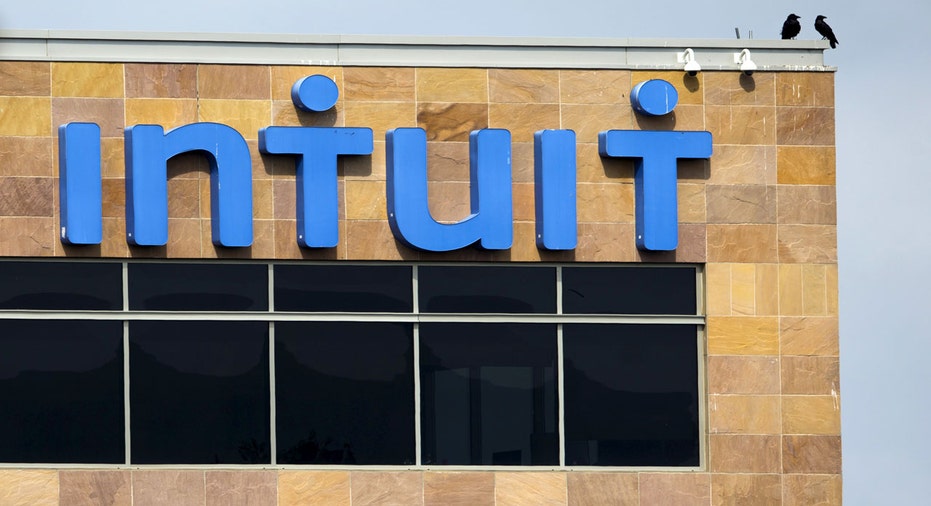Will The Cloud Kill Intuit?

No, the cloud isn’t going to kill Intuit (NASDAQ:INTU). But something’s happening - something big. It’s good news for many small businesses. But it may not be such great news for the software giant.
My company serves more than 600 small and medium sized businesses. And although we mostly implement customer relationship management systems our roots are in accounting and financial management software (I’m a certified public accountant). My client base is made up of mostly established companies – distributors, manufacturers, service providers. And most of them use older versions of QuickBooks which are installed on their servers. My clients are generally people not open to change unless that change is going to make them money – or they’re forced into it. However, during the next few years, it’s obvious that they’re all going to be changing their accounting software.
That’s because of the cloud. Software makers like Intuit are cutting back on their on premise development projects and redirecting most of their efforts to cloud based accounting. And why not? Where we once just bought QuickBooks for a few hundred bucks and installed it on our PCs, now we’re being led (kicking and screaming for some I might add) towards a subscription model where monthly payments are required. This has benefits to the business owner but the real benefit is to the software maker who can now enjoy an almost-guaranteed revenue stream and higher valuations as a result.
So that’s good news for Intuit. But there’s a flip side too.
Intuit, who releases its earnings Thursday, is a good company. Its QuickBooks and TurboTax product lines are the leaders in the small and medium sized business accounting market. Intuit boasts a community made up of millions of users and hundreds of third party applications that integrate QuickBooks with other systems. And it’s not just its accounting software that brings in $4.5 billion to the company a year its profits - they do very well selling forms and merchant payment services too. But the cloud is presenting a huge challenge to Intuit.
And that challenge is Xero. And Intacct. And inDinero. And FreshBooks and Kashoo and Wave and a number of companies that are springing up everywhere and chipping away at the leader’s market share. These are nimble, well-funded organizations that are creating fast and feature-rich applications that are appealing to an audience who were raised on Facebook (NASDAQ:FB) and expect the world to be cloud based. While Intuit has a good online application, QuickBooks Online, but these companies are different. They’re hungry. And they’re gunning to take down Goliath.
Xero, for example, already boasts more than 600,000 subscribers and 16,000 partners worldwide (like Intuit, my company is a Xero partner and offers both products to our client base). Xero has more than 400 third party add-on applications and has experienced significant growth over just the past three years. Intacct has more than 10,500 customers. While inDinero and FreshBooks together have raised close to $40 million to fund their development and marketing. And let’s not forget one of the first ever cloud ERP systems, NetSuite (NYSE:N), which went public in 2007 and focuses more on the enterprise and ERP markets.
It’s not difficult to predict what will happen over the next few years. Newer generations of entrepreneurs with short attention spans and expectations of immediate gratification delivered through their Apple (NASDAQ:AAPL) iPhones and other tablets are already taking over mom and dad’s businesses and pushing to replace that old-school software with cloud applications. Start-ups, conserving cash and organized virtually, are drawn immediately to the affordability and ease of use cloud based applications. And everyone expects that their applications will be up and running whenever they want, accessible wherever they are and able to talk with other applications whenever they need. This generation has no loyalties to Intuit.
And this may become a big problem for Intuit because it’s a victim of its own on premise success. There are literally millions of little QuickBooks databases stored on PCs and servers throughout the world. For Intuit to deliver what Xero and Intacct and others can do they need to move these slow-moving customers to the cloud. This is going to take a long time because small business owners aren’t exactly jumping for joy at the prospect of changing over their accounting systems. And no matter how seamless Intuit makes the transition, many of their customers will use the opportunity to take a look at what else is out there. And they’ll be enticed by what they see. As a result, many will change systems. They’ll have their reasons: a better interface, more integration, easier to use, cooler to use or…it’s just not mom and dad’s old QuickBooks.
And this change will present an enormous opportunity for Intuit’s competitors. And even bigger challenges for Intuit.



















